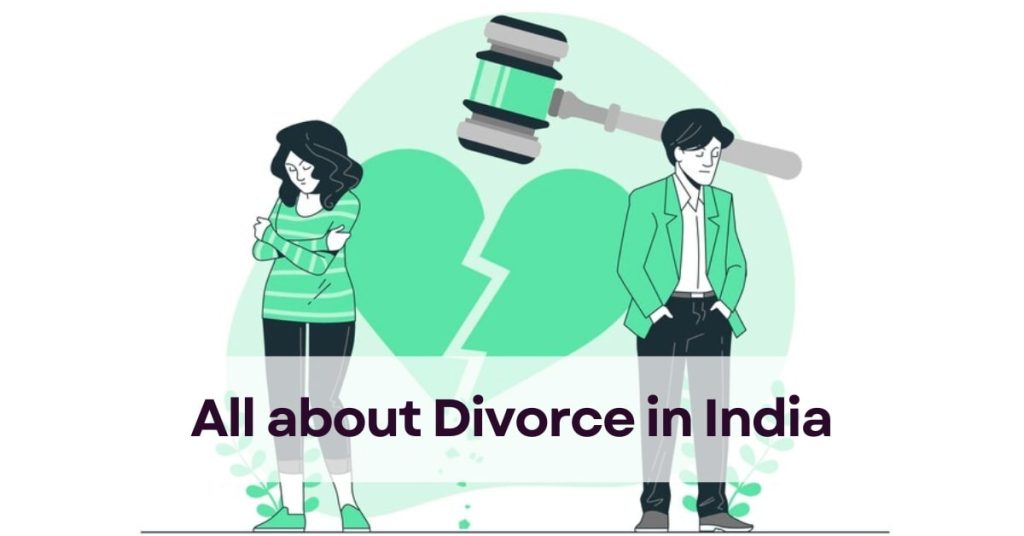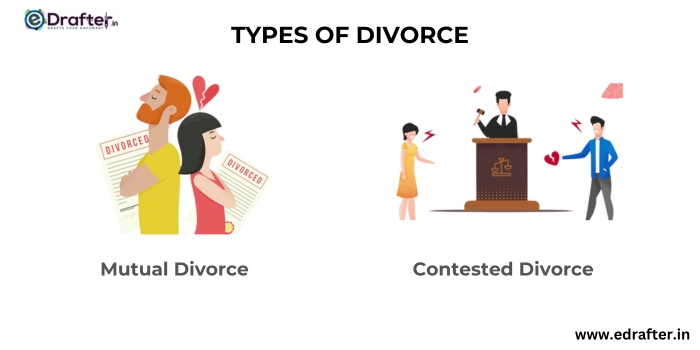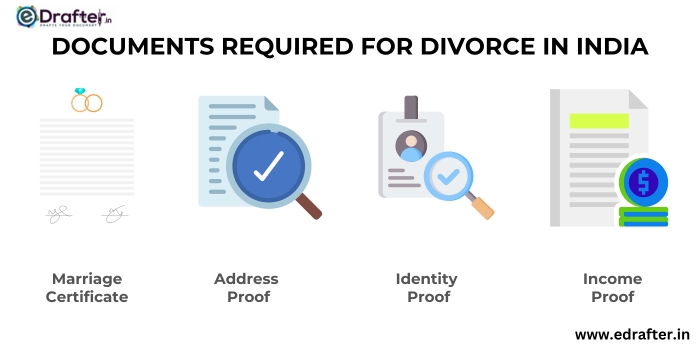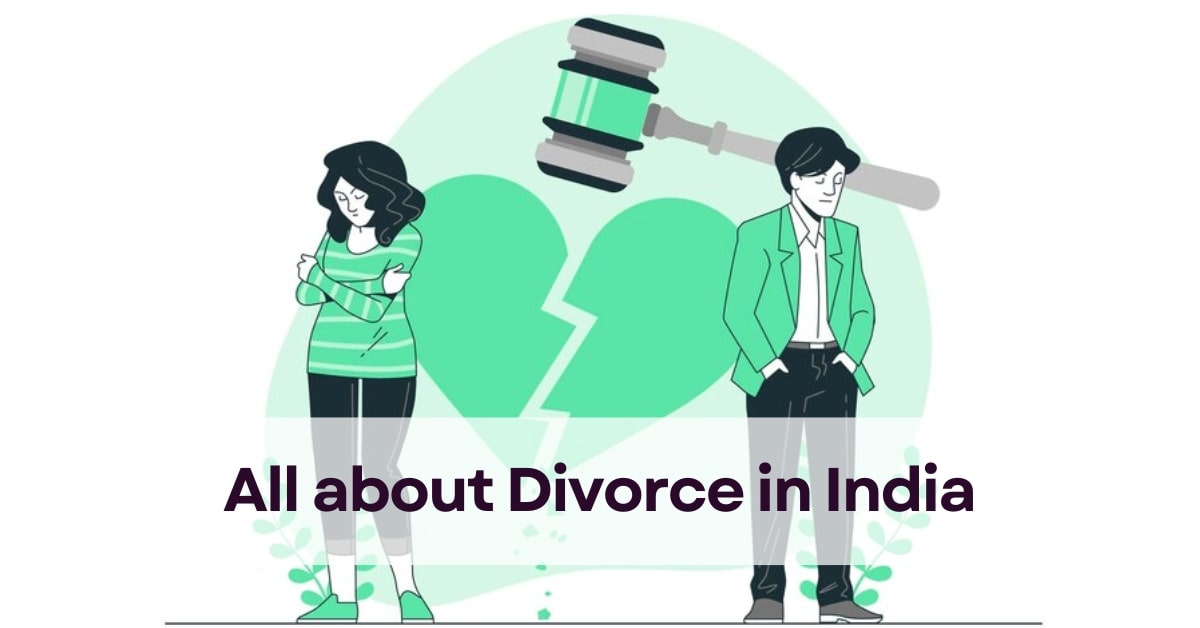
Table Of Content
- What is Divorce?
- What are the Common Causes of Divorce in India?
- What are the Types of Divorce?
- What are the Documents Required for Divorce?
- What is the Process of Divorce in India?
- What are the Rights of Indian Men and Women in Divorce?
- What is the minimum Separation Period for Divorce in India?
- Divorce under the Indian Divorce Act, 1936
- Conclusion
Divorce in India, once considered a Taboo, has been more casual in recent times. There are various reasons that can be socio economic factors as well. Over the years societal change, legal reforms and economic empowerment have come up to make a shift in attitude towards divorce making it a more available solution for individuals facing problems in their marriage. Understanding the difficulties and complications of Divorce Laws, Rights and Procedure is essential for any individual looking and Navigating the process of Marital Dissolution in India.
The acts which are considered during the procedure of Divorce are:
- Hindu Marriage Act,1955: In cases where both the parties are Hindu.
- Divorce Act, 1969: In cases where the Marriage is between two Religions.
- Christian Marriage and Divorce Act, 1957: In cases where both the parties are Christian.
- Muslim Marriage Act, 1981: In cases where both the parties are Muslim.
- Special Marriage Act, 1954: Provides legal framework for the marriages belonging to different religions or Caste.
What is Divorce?
Divorce is the legal termination of marriage in which both the parties dissolve their marital relationship and allows the parties to go their separate ways and free them to marry again if they want to. Individuals opt for divorce if they are not satisfied with their spouse or family, not willing to continue and want to start their life.
What are the Common Causes of Divorce in India?
There are several factors that contributes to the rising rates of Divorce in India, that are;
- Incompatibility- It is one of the main factors that contributes to the rising rates of Divorce. Incompatibility can be differences in personalities, culture, values, and lifestyle that leads to marital conflicts.
- Domestic Violence – Physical Violence, Emotional and Financial abuse can lead divorce to lookout for their well being and Safety.
- Adultery- Extramarital Affairs and physical Relationships with the other person can strain trust and can lead to the foundation of Divorce in Marriage.
- Financial Issues- Disputes related to money management, outstanding payments and financial responsibilities can lead to dissolution of Marriage.
- Family Interference- Interference from In-Law and Family Members can lead to tension and conflicts between the couples in the marriage and can lead of Divorce.
What are the Types of Divorce?
In India, Divorce is Categorized in two main types that are: Mutual Divorce and Contested Divorce.

- Mutual Divorce- When both the parties agree to end their marriage mutually and peacefully, in that case they can file for Mutual Divorce. This process is quicker, less negative and usually involves less expenditure. Parties opting for Mutual Divorce should in prior discuss the terms and conditions.
- Contested Divorce- If one party disagrees with the decision to Divorce or disputes the terms and conditions of the separation then it will be a contested Divorce. This process is more lengthy, complex and involves court proceedings for the dismissal of the case.
What are the Documents Required for Divorce?
To start divorce proceedings in India, there are Certain Documents which are Essential in India, that are:

- Marriage Certificate- A valid Marriage Certificate which is provided by the authorities.
- Address Proof- Documents which identify the Residential Address of both the parties.
- Identity Proof- Documents by Government which identify the person identity these documents can be Adhar Card, Pan Card, Passport or any other Document which is issued by the Government.
- Income Proof- Bank Statements, Income Tax Returns, Salary Slips or any other statement that can access financial status.
- Proof of Mutual Consent: In the case of Mutual Divorce, a joint petition that declares the agreements of divorce.
What is the Process of Divorce in India?
The procedure of Divorce in India varies, whether the divorce is Mutual or Contested:
Mutual Divorce
- Both the spouses if living separated for a duration of 1 year and do not have scope for the advancement of things and willing to dissolve their marriage then they can opt for mutual divorce.
- A Joint Petition should be filed by both the parties stating that they are living separated for one year and have not been able to live together. Should be signed by both the parties and presented to the family Court.
- Both and the Parties should Present before the court with their respective counsels/ lawyers. Then the court will inspect the issue with the provided documents, try to bring reconciliation between the spouses, if this is not possible, the matter proceeds to the further step.
- On this step the court passed the orders to record statements on Oath.
- Once the statement is recorded, an order for the first motion is passed where a period of six months will be given to both the parties before they can file for second motion.
- If the parties have decided to go further, they will appear for the second motion in the family court where their statements will be recorded.
- If both the parties have given their consent and no difference is left between both the parties then the court may pass a decree for the divorce.
Contested Divorce
- Consultation with a Lawyer: Look for advice from a family law attorney who focuses on divorce cases.
- Filing a Petition: One spouse files a petition for divorce in the family court. The petitioner must state the grounds for divorce.
- Service of Summons: The court issues summons to the other spouse, informing them about the divorce petition and court proceedings.
- Response: The respondent can either contest the divorce petition or agree to it. If they agree, they must file a written response stating their side.
- Discovery: Both parties exchange their relevant information and documents related to asset, Liabilities, income, etc.
- Counseling: Courts may encourage counseling to help resolve disputes. If successful, the divorce can proceed uncontested.
- Pre-Trial Hearings: The court may hold pre-trial hearings to discuss procedural issues, set deadlines, and possibly encourage settlement.
- Trial: If the case remains unresolved, it goes to trial. Both parties present evidence, witnesses, and arguments.
- Judgment: The court considers all evidence and issues a judgment, granting or denying the divorce and addressing related matters like alimony, child custody, and property division.
- Appeal: Either party can appeal the judgment if they disagree with the court’s decision.
- Final Decree: Once all legal proceedings are complete, the court issues a final decree of divorce, legally dissolving the marriage.
You can rely edrafter for any type of Divorce service. Whether, it is contested or Mutual, we have expert divorce advocate who will take care of your divorce procedure and safeguard your legal rights. From drafting the petition to proceedings, everything will be taken care.
What are the Rights of Indian Men and Women in Divorce?

- Property Rights: Both men and women have the right to claim their share of marital assets, which includes property, investments, and other valuables obtained during the marriage.
- Custody and Visitation Rights: For example, both parents can seek custody or rights to visit with their children based on the best interest of the child.
- Financial Obligations: One may be awarded spousal support from the other depending on factors such as earnings, financial needs and standard of living.
- Legal Representation: Both men and women have the right to legal counsel in order to ensure their rights are not violated during divorce proceedings.
- Fair Treatment: Both parties have a right to equal protection under law regardless of whether they are male or female in divorce cases.
What is the minimum Separation Period for Divorce in India?
For divorce to occur, there is a minimum time in which the spouses must be separated. This varies depending on the type of divorce involved:
- Mutual Divorce: Where both parties agree to get divorced, they are required to live separately for at least one year before filing for divorce.
- Contested Divorce: In contested cases such as where only one spouse does not want to have a separation or perhaps disagree with terms of separation, no specific period of separation has been provided by statute. But duration of separation could be regarded as an issue by the court while deciding the matter.
Divorce under the Indian Divorce Act, 1936
The Indian Divorce Act of 1936 is a significant legislative enactment that governs divorce among certain religious communities in India, particularly Christians. These are the main features of the Indian Divorce Act of 1936:
- Applicability: The Act is applicable to marriages contracted between Christians in India.
- Grounds for Divorce: The Law stipulates some grounds upon which Christian marriage can be brought to an end such as; adultery, cruelty, desertion, conversion to another religion and unsoundness of mind.
- Divorce Procedure: The Act sets out how a petition for divorce can be filed including court jurisdiction and grounds for divorce as well as rules which apply by law.
- Judicial Separation: In addition to divorce, it has an option for judicial separation where spouses can live separately without dissolving the marriage. This offers couples who may wish to reunite someday a way forward.
- Financial Provisions: Alimony, maintenance and financial support after separation or divorce are included in the act.
- Custody of Children: It deals with various factors related to welfare of children including provision on determination of custody, visitation rights and maintenance granted towards children born under this act.”
Conclusion
The process of divorce in India is a complex one that is influenced by cultural, social, and legal aspects. Knowing the types of divorce, procedures followed therein as well as understanding what rights each partner has will help one go through this trying time. To achieve a fair and equitable resolution in marital disputes while protecting all involved parties’ interests changes are being made in societal norms and legal reforms.


